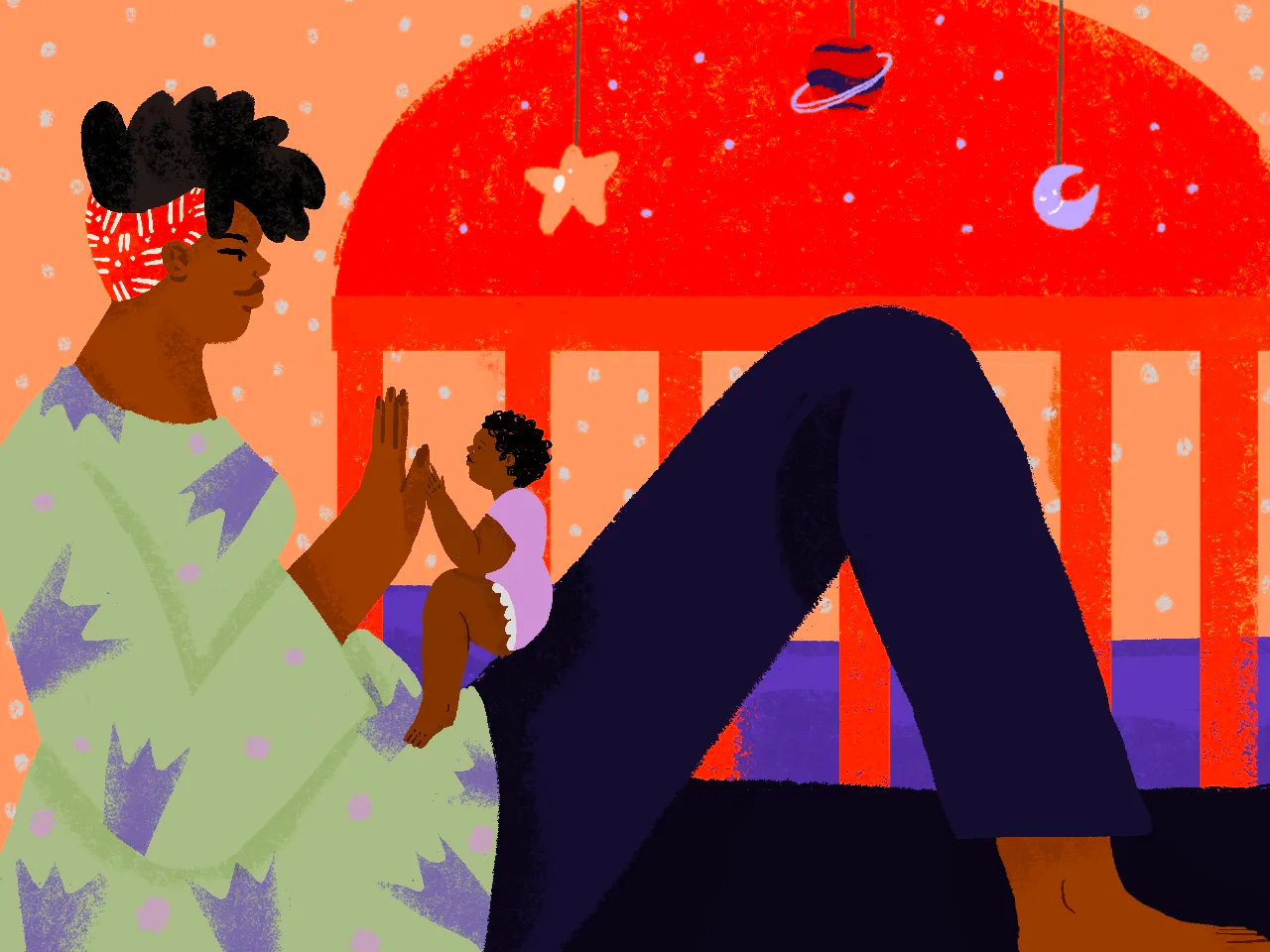Centering Black mothers this mother’s day and beyond
“It’s a political moment when you become a Black mother." - Anna Malaika Tubbs
Last year, an amazing organization called Parent Voices Oakland asked me and my consulting agency, Change Consulting, to conduct listening sessions with Black birthing people in the Bay Area.
As a Black mom myself, I jumped at the opportunity to work on this project, as I tend to do on any project that centers Black mothers. (Shout out, too, to my colleague Dina Sigal who worked with me on this project). Together, we held five listening sessions with nearly 40 Black mothers in Oakland and Hayward. We asked participants to speak about the challenges they face; their pre-conception, pregnancy, and post-birthing experiences; and what they need so that, along with their families, they could live full and healthy lives.
What we heard was this: During birth and beyond, Black mothers are caught under the weight of countless systemic challenges, including housing insecurity in a region grappling with vast wealth inequality and displacement, lack of access to basic resources such as mental health support, and fear and worry about the safety and security of their kids. When resources are available, participants are often met with biases and hurdles when trying to access them. They talked about the isolation they felt, the deep lack of community care and support networks. One after the other, they shared personal, harrowing, and raw stories about their birth journey and what they experienced in hospitals - pain many of them have yet to heal from.
Their stories reflect what Black mothers in the Bay Area and across the country face. Here are just some of the heartbreaking statistics. Black women in the Bay Area are twice as likely to live in poverty than other residents and to report experiencing more hardships during pregnancy — such as homelessness, loss of a loved one or food insecurity. Black babies in the Bay Area are two to three times more likely to be born too soon or too small, or to die before their first birthday. Black women in America are two to three times more likely to die in childbirth than white women.
Despite these multiple, interlocking challenges, the Black mothers in the listening sessions expressed strength, resiliency, creativity, love, and a deep determination to create a better life for their families and children. They called out the disconnect between how they saw themselves and how the world perceived them – through a lens of racist, preconceived notions and stereotypes associated with Black women and women of color.
Yet, rather than calling out systemic change, participants mainly put the responsibility on themselves when asked about solutions, pointing to solutions that are mostly individual and community-centered. It reminded me a lot of this quote from Anna Malaika Tubbs, that “as Black women, we're more than conquered victims. When people cast us that way, they aren't intervening and helping. There's no sense of a need for protection or resources. It's almost an accepted, inevitable burden that Black women are going to carry. And it's simply not true. So it's an important balance, describing the loss and the real dangers that Black women, Black children, and Black people are facing, while also acknowledging that we fought against those dangers. We don't let them control us. We have no other option but to keep fighting to change policies and to move things forward.”
Since these sessions, I have been thinking a lot about how we can collectively shape a society that centers, cares for, and protects Black mothers, so we are not facing and fighting those dangers alone. For solutions, I look to groups and efforts led by Black women, and am sharing those examples here so we can all rally around them and Black mothers:
We can push for policy and systems change to improve Black maternal health outcomes. Organizations like Black Mamas Matter Alliance and efforts like Deliver Birth Justice in the Bay Area are helping to do just that.
We can stop family separation, protect Black mothers’ rights to parent and ensure that Black families can stay together. That’s the work that groups like Afiya Center (which recently helped to reunite this family in an extremely infuriating case) and Operation Stop CPS are doing.
We can fight to put Black women, who are often excluded by our current economic structures, at the center of economic policies. I’m excited about the work that groups such as Maven Collaborative and California Black Women’s Collective will be doing in that area.
We can end mass incarceration’s harm on Black families and communities by supporting groups like Essie Justice Group. This mother’s day, Essie is once again leading Black Mama’s Bailouts in California as part of the National Bail Out Campaign.
We can partner with organizations like Parent Voices Oakland that are helping to build power among Black parents and parents of color to advocate for affordable, accessible, quality child care, among other changes.
As my friend Natalie Berbick says, “imagine if Black mothers, women, parents didn’t have to fight so hard to advocate for our own wellbeing and that of our children, and instead could just BE, living and thriving in peace and abundance?” That is the future I am dreaming of this mother’s day.
Now, I want to hear and learn from you. What is one way you plan to support Black birthing people this mother’s day and beyond?




